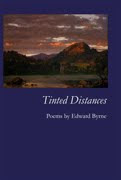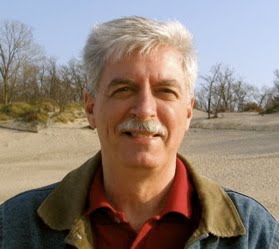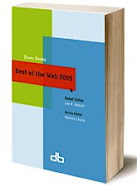 The recent appearance of Lynda Hull’s Collected Poems is a welcome surprise. This book is the initial entry in the new Graywolf Poetry RE/VIEW Series, edited by Mark Doty, which will bring back into print essential collections of contemporary poetry. (Collected Poems also carries an insightful introduction by Yusef Komunyakaa that acts as an enticing invitation into the poetry of Lynda Hull.) The series could not have begun with a better selection. I remember the interest with which I would read Hull’s poems when they first appeared in literary journals and her two early books. I also recall the sadness upon learning the news of her untimely death in 1994 and the silencing of such a fine poetic talent.
The recent appearance of Lynda Hull’s Collected Poems is a welcome surprise. This book is the initial entry in the new Graywolf Poetry RE/VIEW Series, edited by Mark Doty, which will bring back into print essential collections of contemporary poetry. (Collected Poems also carries an insightful introduction by Yusef Komunyakaa that acts as an enticing invitation into the poetry of Lynda Hull.) The series could not have begun with a better selection. I remember the interest with which I would read Hull’s poems when they first appeared in literary journals and her two early books. I also recall the sadness upon learning the news of her untimely death in 1994 and the silencing of such a fine poetic talent.In 1995 Lynda Hull’s husband, poet David Wojahn, who contributes an afterword to Collected Poems, saw to the posthumous publication of The Only World, the book she had already finished at the time of her death. Like her previous two collections, Star Ledger and Ghost Money, the poems in her final volume display a vivid and gritty lyricism often built upon observations of others' difficult circumstances, as well as the honest chronicling of complex experiences lived by the poet. However, works in The Only World achieved an even higher level of attention to craft and intensity in content, including the powerful “Suite for Emily,” a compelling extended sequence at the center of the collection that addresses a young woman's death from AIDS contracted during injections of heroin.
Reading "Suite for Emily," one might easily be reminded of the emotional tension and forceful language in Allen Ginsberg's "Howl." However, Hull's elegy to Emily conjures up allusions to Dickinson within the lines of the poem: "I'm thinking of Dickinson's letter, / 'Many who were in their bloom have gone / to their last account and the mourners go about // the streets.'" The conditions in which Hull's friend Emily is depicted at the time leading to her death display an individual whose world has collapsed as much as any vein too often stabbed by an addict's needle: "Emily's // in prison again, her child's lost to the State, / Massachusetts. Fatigue, pneumonia, / the wasting away."
The poet describes a closeness that once existed between herself and Emily before Hull ("the one who was left") was able to escape the dangerous and sordid street life described so arrestingly throughout the poem: "We were so young we'd spend & spend / ourselves as if there'd be no reckoning, then grew / past caring." Emily serves as Lynda Hull's doppelganger in this piece that highlights the divergent lives the two women finally chose: "Parallel lives, the ones / I didn't choose, the one that kept her."
By the close of Hull's wonderfully moving poem her voice transitions from resembling Ginsberg's to perhaps that of Sylvia Plath during a section in which she presents an "Address" to Death: "Death you have taken my friends & dwell / with my friends. You are the human wage. / Death I am tired of you." When Hull eventually encounters the absence of Emily, of other friends, of the life she once lived, her comments appear nearly to invoke a dreaded sense of isolation (although a survivor, a woman almost lost amid emotional exhaustion): "Off the lake a toothed wind keens / & it's just me here, the one who's left." I had believed Hull's "Suite for Emily" to be one of the lost treasures of American poetry's last two decades, and I'm thrilled it may now be rediscovered by many more readers.
One could conclude the whole of Hull’s poems sometimes feels cinematic, perhaps filled with scenes from a magnificent film noir, and the tone of the poetry often appears to mimic the beautifully tense or hauntingly expressive music one might hear in improvisations by Charlie Parker or Chet Baker, just two of the jazz figures included in her work who influenced the rhapsodic songs of Hull’s poems. For many, this book, which includes all three of Hull’s volumes, will serve as an introduction to the poet, and I’m sure the loss of her passionate voice will be felt again when each reader reaches the final page of poetry.
Hull, Lynda. Collected Poems. Graywolf Press, 2006.























No comments:
Post a Comment